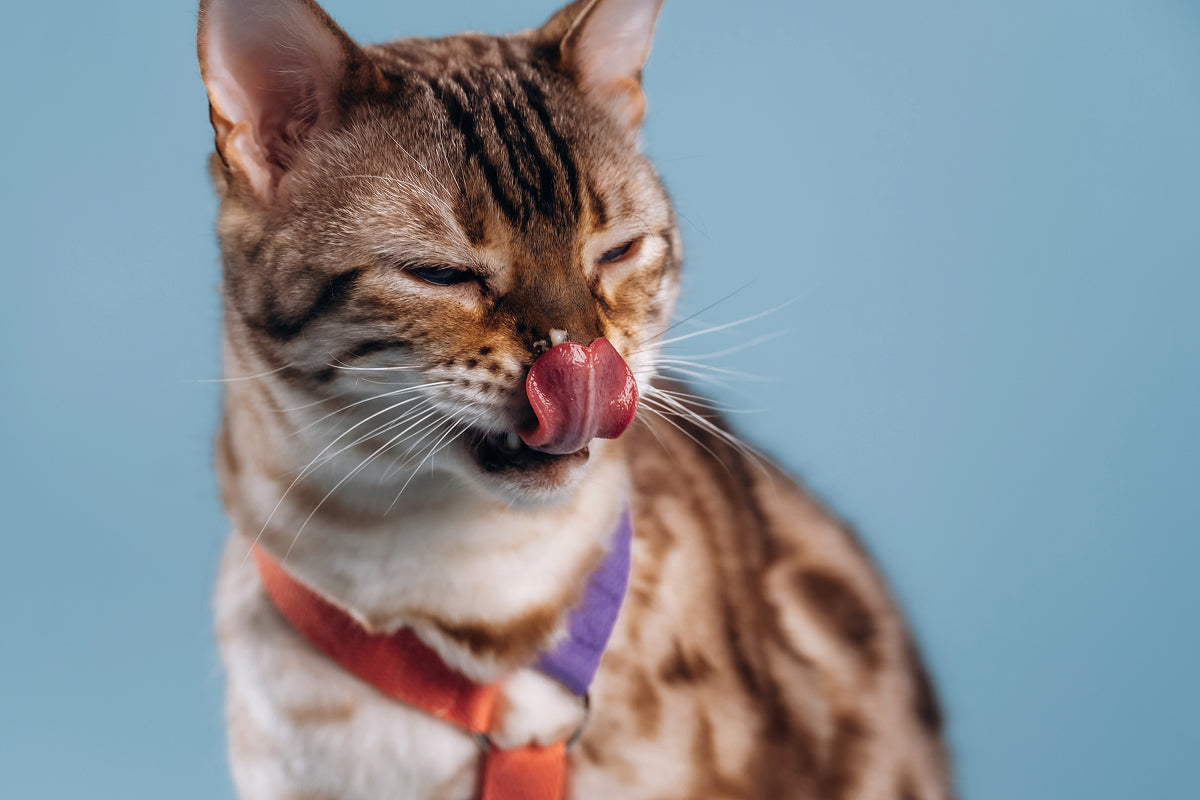Can Cats Eat Grapefruit? Get the Inside Scoop

Caring for our pets means understanding which foods are safe for them and which ones can cause harm. A common citrus fruit like grapefruit may seem harmless, but it can pose significant risks to different pets when eaten in large amounts. With its high citric acid content and potential to cause digestive issues, Texas Rio red grapefruit may not be the best choice for our furry companions.
Keep reading to learn more about why grapefruit should be avoided for most cats and the symptoms of grapefruit poisoning.
Is Grapefruit Toxic to Cats?
No, your cats should never eat grapefruit, and grapefruit essential oils are also unsafe for cats. Grapefruits are extremely toxic to cats, and even small quantities can lead to severe health problems. Grapefruit toxicity can be caused by the citric acid and essential oils found in grapefruits, especially in the peel and seeds. For pet owners, we recommend that you always keep grapefruit out of reach of your cat to avoid accidental exposure. If you suspect your cat has eaten grapefruit, it’s best to consult a veterinarian immediately.
Signs of Grapefruit Poisoning in Cats
If your cat has grapefruit poisoning, it may experience symptoms such as:
- Lethargy and weakness
- Shaking or trembling
- Vomiting or diarrhea
- Excessive drooling
- Sensitivity to light
- Signs of liver or kidney failure
In addition to grapefruit, avoid giving your cat grapes, oranges, cherries, avocados, or tomatoes. If you really want to feed your cat fruit, stick to bananas, blueberries, and watermelon. These fruits are less likely to upset your cat’s stomach. Still, it’s important to talk to a vet before making changes to your cat’s diet.
What Pets Can Eat Grapefruit?
Unfortunately, there are very few common pets that can safely eat fruits from the citrus family. If you have a pet pig, you can let them dig into a delicious grapefruit treat, and pet birds might enjoy nibbling on the rind after you eat the grapefruit flesh. Still, it’s best to consult with a veterinarian before adding grapefruit to your pet’s diet.
However, for many other common pets, the high acidity found in citrus fruits can lead to serious health issues, like grapefruit poisoning. For example, for dogs, eating grapefruit may induce vomiting, skin irritation, and other digestive system symptoms, while rabbits and other small rodents can suffer from digestive upset or even kidney failure after eating grapefruit. Also, reptiles such as lizards can experience gastrointestinal issues.
As a pet parent, you should avoid offering peeled grapefruit or any part of the fruit to your animals and, instead, consider alternative fruits and veggies that are known to be safe for your pets.
Enjoy Delicious, Fresh Grapefruit from Winter Sweetz
Keeping your pets safe starts with knowing which foods can and can’t harm them. Grapefruit may be a healthy snack for humans, but feeding grapefruit to pets can pose some real risks. As pet parents, staying informed is important in making the best choices for our furry friends.
Hey, we know your pets might have to pass on the grapefruit, but that doesn't mean you can't enjoy it! While your furry friends need to stick to less-acidic snacks, feel free to indulge in a fresh Texas Rio red grapefruit yourself! Our new grapefruit season is about to begin! Sign up for our newsletter to be the first to know when our tasty fruit are back in stock!
Sign up for our newsletter to be the first to know when our delicious Texas Rio red grapefruit are back in stock!
